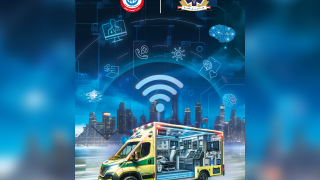Marseille is, and always has been, a melting pot of cultures, food and styles. It has belonged to the Greeks, Romans and, of course, the French. These days, it is well known for its musical scene and grand views, and was named European capital of culture in 2013.
Last year, it was home to Capacity’s Subsea Connect event – a location picked in part to reflect its emergence as a key meeting point for subsea cable systems, with 13 currently landing in the city. These come from Africa, the Americas, the Middle East and Asia, with connectivity back into the rest of Europe.
For Orange, host sponsor at this year’s Subsea Connect EMEA which will also be held in Marseille, the city is seen as a key location. Pierre-Louis de Guillebon, CEO of Orange International Carriers says the city is in a “fantastic situation” for the subsea cable industry.
He explains: “There are 13 cables arriving, landing in Marseille, and they are coming from Africa, the Middle East and Asia. If you consider that in Asia you have India plus China, that’s more than three billion people. All of these people want to connect to fast content, and that is located in Europe in places like Marseille, Frankfurt, London and Amsterdam – data centre hubs.”
For Orange customers looking to connect to AWS or an application that is housed in Europe, they will “go through Marseille”. In fact, four billion people are estimated to connect through the French port. For Orange, its presence in Marseille is a key part of its connectivity strategy.
“Marseille is France, and France is Orange,” he adds, pointing to the French firm’s heritage as France Telecom. “We are playing at home. We have a huge terrestrial network that can connect to cables across Europe and we are selling capacity on submarine cables, backhaul and terrestrial network – 10G or 100G. We can have several routes from Marseille to other cities, often three routes, which for security is fantastic. We also have a very simple pricing methodology selling 10G and 100G, meaning we have a very simple offer. And we promise to deliver in two weeks, compared with two months on Orange before.”
So what has led to Marseille becoming such a key hub for the subsea industry?
CEO de Guillebon points to two factors: “history and placement”.
Marseille has always been a key port in the Med, simply because of where it sits. But now, with so many subsea cable systems landing there, the onward connectivity to the rest of Europe – the so-called FLAP cities of Frankfurt, London, Amsterdam and Paris – means it is attracting more cables.
He adds: “Italians are trying to place Sicily as a key hub over Marseille. And so are people from Spain. But in the wholesale industry, it is all about numbers. Right now, most cables land in Marseille and you have strong onward connectivity to FLAP cities. It is easier for new cables to arrive and land in Marseille.
“To land a new cable, it takes a lot of work – you need permissions, you need the technical elements like the network to be available, and this is all already set in Marseille. Cables are already very complex so you don’t want to spend additional time finding a new location to land. Marseille is already prepared for new cables and so I think it is one of the best locations in Europe.”
Orange is all in when it comes to Marseille. The company sponsors Olympique de Marseille, the city’s football (or soccer for those of you in the US) team, including its stadium, the Orange Velodrome.
It also has an established partnership with Interxion, which recently opened its second data centre in Marseille. The Orange International Carriers CEO was on hand for the opening, and said its partnership with Interxion was an important part of Orange’s strategy there. Orange now offers a direct connection between Marseille and Penmarch in Britany, opening a unique access to West Africa with two additional cables.
“We’re working with Interxion, which owns one of the biggest data centres in Europe – and Marseille is growing,” he adds. “We can provide facilities through our network to connect different Interxion locations. What we also have is an agreement which sees us able to resell and integrate part of Interxion’s solutions. So we can integrate not only our own network solutions but also bits of Interxion’s service by reselling and aggregating what we have signed with them.”
We spoke just before l’OM – as the locals call their football team – played Atlético Madrid in the UEFA Europa League final in Lyon, and de Guillebon said he’d be in the city the night the game was being played. Sadly for him, Marseille lost 0-3. But from what he says, the city of Marseille is a real winner.





